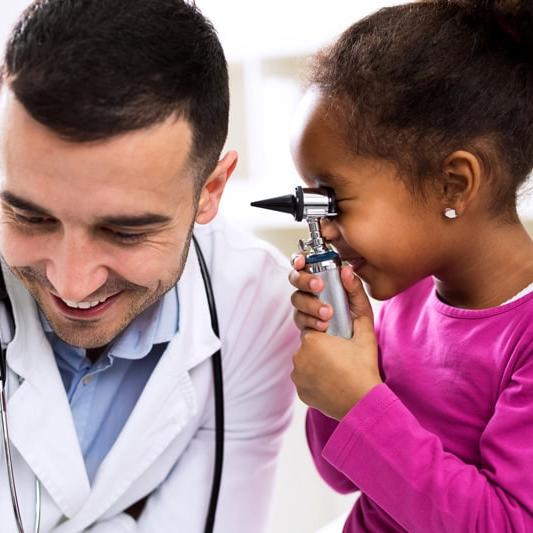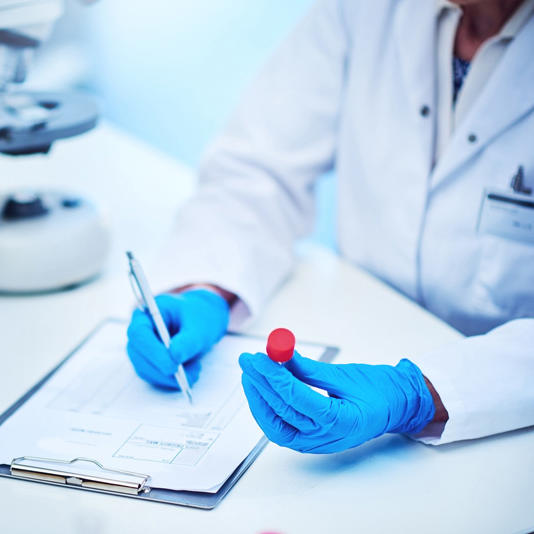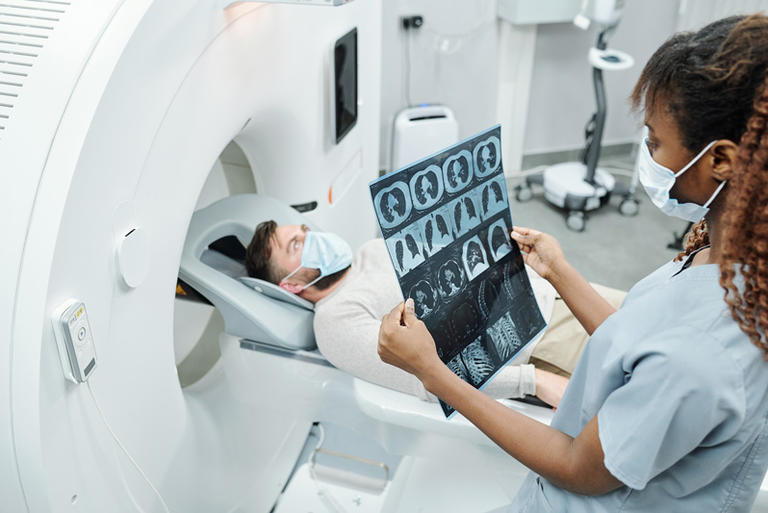If you are interested in helping people with skin disorders—a prevalent problem worldwide—then you may consider a career as a dermatologist—a doctor specially trained in finding, preventing, and treating diseases of the skin, hair, nails, and adjacent mucous membranes. Many people wonder: what is a skin doctor called? The technical name for a skin doctor is a dermatologist. As a dermatologist, you will be able to identify and treat more than 3,000 conditions, and you can help improve the quality of life for people suffering from minor and irritating conditions to severe and life-threatening maladies.
If you are considering a career as a dermatologist, ask yourself these questions:
- Are you fascinated by the integumentary system?
- Do you want to study a dynamic and constantly evolving science?
- Do you want a field that offers professional challenges and specialized options?
- Are you passionate about helping people with diseases of the skin—the largest organ in the human body?
- Do you want a career in one of the most in-demand fields of medicine?
- Do you want to help babies with rashes, adults with cancer, and senior citizens with eczema?
- Do you want to help improve a patient’s self-esteem—or possibly save their lives?
If your answer to these questions is “yes,” then dermatology may be the specialty for you.
What Does a Dermatologist Do?
Many people want to know exactly what is a dermatologist? A dermatologist diagnoses and treats patients with disorders of the skin, mouth, external genitalia, hair, and nails, as well as various sexually transmitted diseases. You may be wondering what is a dermatologist's tasks aside from this. Dermatologists also diagnose and treat skin cancers, melanomas, moles, and other skin tumors, and help people manage contact dermatitis and other allergic and nonallergic skin disorders. A dermatologist will recognize skin manifestations of systemic and infectious diseases. Dermatologists are also trained in dermatopathology—the diagnosis of skin diseases—and in surgical techniques used in dermatology.
A dermatologist cares for and treats the skin, the human body’s first line of protection. Dermatologists—internists who then specialize in dermatology—care for people of all ages, from newborns to senior citizens. Dermatologists work with patients suffering from any of thousands of skin conditions, including:
- Acne
- Athlete’s foot
- Cancer
- Dermatitis
- Eczema
- Herpes
- Herpes labialis (cold sores)
- Impetigo
- Infections
- Psoriasis
- Rashes
- Rosacea
- Sunburn
Dermatologists are medical doctors and skin surgeons. The care of a dermatology patient may include topical and systemic medical therapeutics, as well as a variety of surgical and cosmetic procedures. Such therapeutics and procedures include:
- Anti-aging treatments
- Chemical peeling
- Correction of acne scarring
- Cryosurgery or Cryotherapy
- Excisions
- Hair transplants
- Injectable and implantable soft tissue fillers
- Laser surgery
- Liposuction
- Reconstructive flaps and grafts
- Sclerotherapy
- Skin cancer treatment
- Tissue augmentation therapies
- Vein therapy
Many dermatologists are also active in academic circles and participate in conferences and publications dedicated to advancing dermatological knowledge and therapeutic options.
HOW TO BECOME A DERMATOLOGIST
To become a dermatologist, you must first become a physician by graduating from an accredited medical school*—such as Ross University School of Medicine (RUSM). The steps to a medical degree at RUSM, which is located on the Caribbean island of Barbados, are the same as at United States-based schools: two years of medical science classes and two years of hands-on clinical training. For RUSM students, the medical sciences curriculum is completed on the Barbados campus; the clinical training can be completed at affiliated teaching hospitals in the United States.
During clinical training, RUSM students complete core rotations in internal medicine, surgery, pediatrics, family medicine, obstetrics/ gynecology, and psychiatry. Each student, then, selects from among 40 specialty elective clerkships to fulfill their remaining clinical requirements.
During the fourth and final year of medical school, students prepare for the next step in their medical education: residency. At RUSM, the Office of Career Advisement (OCA) helps students determine which residency specialty—such as dermatology—suits them best. The OCA then helps students negotiate the National Resident Matching Program® (NRMP®)—a placement system which medical students who want to obtain licensure in the United States use to “match” with a medical residency. Residencies are required to become a licensed physician, and they last from three to eight years. Future dermatologists must do a preliminary training year in a broad-based clinical specialty (usually an internal medicine residency) before completing a three-year residency in dermatology.
In 2021, RUSM had a first-time residency attainment rate of 92 percent for 2020-2021 graduates, a match percentage rate comparable with the overall match rate (93 percent) for medical schools in the United States. In recent years, RUSM MDs have matched with preliminary medicine residencies (ahead of their specialty residencies) at such hospitals as Flushing Hospital Medical Center and St. John’s Riverside Hospital in New York; the Medical College of Georgia; and St. Mary’s Hospital in Connecticut.
After the successful completion of dermatological training, qualified candidates are then eligible to become certified by the American Board of Dermatology, the American Osteopathic Board of Dermatology®, or the Royal College of Physicians and Surgeons of Canada. A board-certified dermatologist will earn the abbreviation FAAD, meaning the doctor is a Fellow of the American Academy of Dermatology. Doctors who then want to subspecialize in a specific field of dermatology must take additional training.
A Career in Dermatology
Dermatologists may work in a clinic, hospital, or medical office, and some have their own private practice. You may be wondering what is a dermatologist’s normal routine like. Most time is spent caring for outpatients, but many hours are spent doing laboratory work, visiting wards, or performing procedures. Meetings and administration tasks absorb a lot of time, and hours are also spent consulting with other specialists, doing research, studying, and teaching. Most dermatologists work a typical 40-hour week, and some are also on-call—available for consultation at night or on days off.
Because skin cancer is the most prevalent of all cancers, and because skin, hair, and nail problems affect a significant portion of the world’s population, dermatologists can have a great impact on the individual lives of patients as well as overall community health. Dermatologists help not only with medical issues, but also with a patient’s self-esteem, emotional well-being, and social interaction.
Demand for Dermatologists
Dermatologists are in high demand and they will continue to be in the future as well. With the rate of skin cancer rising, both men and women are taking an active role in taking care of the health of their skin. This adds to the demand for dermatologists, in particular cosmetic dermatology.
Dermatologists—like doctors in all medical fields—are an aging population, and as those doctors retire, the United States will see an increasing shortage of dermatological specialists. In July 2020, an Association of American Medical Colleges report showed that one third of United States physicians are aged 60 or older, and well over half—57 percent—are over 50.
The Ross University School of Medicine has a strong history of placing graduating students in internships or internal medicine residencies. In 2020, RUSM’s 2019-2020 first-time residency attainment rate was 95 percent. Take the next step on your path to a specialization in dermatology: apply for admission to RUSM.
Related resources:




